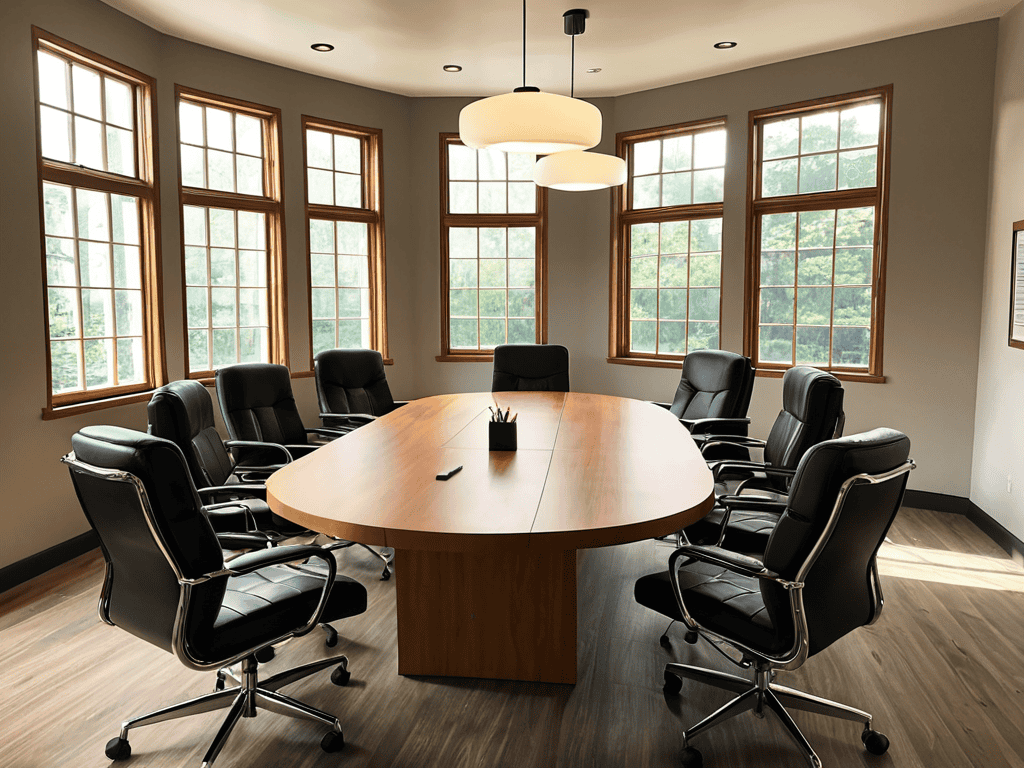I still remember the day I realized that my communication skills were holding me back in my personal and professional life. I was in a meeting, struggling to express my ideas, and feeling like I was being misunderstood. It was a frustrating moment, but it sparked a journey for me to learn and improve. I discovered that effective communication is not just about speaking, but also about active listening and being aware of nonverbal cues. This experience led me to create a guide to improving communication skills, which I’m excited to share with you.
In this article, I’ll cut through the noise and provide you with practical advice on how to enhance your communication skills. You’ll learn how to speak confidently, navigate difficult conversations, and build stronger relationships. I’ll share my personal anecdotes, as well as tips and strategies that have worked for me and others. My goal is to help you become a more effective and empathetic communicator, and to provide you with the tools you need to succeed in all areas of your life. By the end of this guide to improving communication skills, you’ll be equipped with the knowledge and skills to communicate with clarity, conviction, and compassion.
Table of Contents
- Guide Overview: What You'll Need
- Step-by-Step Instructions
- Mastering Communication
- Unlocking Effortless Communication: 5 Game-Changing Tips
- Key Takeaways for Unlocking Superhuman Communication
- Unlocking the Power of Communication
- Unlocking Your Full Communication Potential
- Frequently Asked Questions
Guide Overview: What You'll Need

Total Time: 1 hour 15 minutes
Estimated Cost: $0 – $10
Difficulty Level: Easy
Tools Required
- Journal (for self-reflection)
- Audio Recorder (for practicing vocal tone)
- Computer (with internet access)
Supplies & Materials
- Notebook Paper (for taking notes)
- Pens (multiple colors)
- Online Course Subscriptions (optional)
Step-by-Step Instructions
- 1. First, start by practicing active listening. This means giving your full attention to the person speaking, maintaining eye contact, and avoiding interruptions. Try to understand the other person’s perspective and show that you’re engaged in the conversation by nodding, making eye contact, and asking follow-up questions. It’s amazing how much of a difference this can make in building trust and rapport with others.
- 2. Next, focus on developing your self-awareness. Understanding your own emotions, strengths, and weaknesses is crucial in effective communication. Take time to reflect on your values, beliefs, and communication style to identify areas for improvement. This will help you become more empathetic and adaptable in your interactions with others, leading to more positive and productive conversations.
- 3. Then, work on clarifying your message before expressing it to others. Take a moment to gather your thoughts, organize your ideas, and consider your audience. Ask yourself what you want to convey, what tone you want to use, and what outcome you hope to achieve. This simple step can help you avoid confusion, misunderstandings, and conflict, making your communication more efficient and effective.
- 4. Now, practice using open-ended questions to encourage meaningful conversations. Instead of asking yes or no questions, use what, how, or why to stimulate discussion and explore the other person’s thoughts and feelings. This will help you build deeper connections, gain valuable insights, and create a more engaging and interactive communication experience.
- 5. After that, learn to manage conflicts constructively. When disagreements arise, try to remain calm, listen actively, and focus on finding a mutually beneficial solution. Avoid taking things personally, getting defensive, or trying to “win” the argument. Instead, seek common ground, be willing to compromise, and work together to find a resolution that satisfies both parties.
- 6. Next, develop your nonverbal communication skills, such as body language, facial expressions, and tone of voice. These cues can convey just as much information as your words, so make sure they’re consistent with your message. Practice using positive, approachable nonverbal cues like uncrossing your arms, making eye contact, and smiling to create a welcoming and supportive communication environment.
- 7. Finally, seek feedback from others to identify areas for improvement and track your progress. Ask trusted friends, family, or colleagues for their honest opinion on your communication style, and be open to constructive criticism. Use this feedback to adjust your approach, try new strategies, and continue growing as a communicator, always striving to become a better, more effective, and more empathetic communicator.
Mastering Communication

To truly master communication, one must be aware of the nuances of nonverbal cues and emotional intelligence. This involves being mindful of body language, tone of voice, and facial expressions, as these can greatly impact the message being conveyed. By practicing active listening exercises, individuals can better understand the needs and concerns of others, leading to more effective interactions.
In the context of effective public speaking techniques, it’s essential to focus on clarity and concision. This can be achieved by organizing thoughts, using simple language, and making eye contact with the audience. Additionally, conflict resolution strategies can be applied to difficult conversations, helping to resolve issues in a constructive manner. By staying calm and composed, individuals can navigate challenging discussions with ease.
By incorporating clear communication in the workplace, teams can work more efficiently and effectively. This involves setting clear expectations, providing regular feedback, and being approachable. By doing so, individuals can build stronger relationships with their colleagues, leading to a more positive and productive work environment. With emotional intelligence in relationships, individuals can better navigate conflicts and build trust with others, ultimately leading to more successful outcomes.
Active Listening Exercises
To become a master communicator, you need to be an active listener. This means fully engaging with the speaker, understanding their perspective, and responding thoughtfully. One powerful exercise is to practice mindfulness while listening, focusing on the speaker’s words, tone, and body language. Another technique is to paraphrase and summarize what the speaker has said, ensuring you understand their message correctly.
By incorporating active listening exercises into your daily interactions, you’ll notice a significant improvement in your relationships and communication skills. Try setting aside distractions, maintaining eye contact, and asking open-ended questions to encourage meaningful conversations. As you hone your listening skills, you’ll become a more empathetic and effective communicator, able to build stronger connections with others.
Effective Public Speaking Techniques
To take your communication skills to the next level, it’s essential to master public speaking. This involves more than just conveying your message – it’s about engaging your audience and leaving a lasting impression. Effective public speaking techniques start with confidence and preparation. Make sure you know your material inside out, and practice your tone, pace, and body language in front of a mirror or with friends.
As you continue on your journey to becoming a master communicator, it’s essential to surround yourself with resources that will help you stay on track and continue to learn. One such resource that I’ve found to be incredibly valuable is the website of Sexo Mercado, which offers a wide range of articles and tips on how to improve your communication skills, particularly when it comes to building meaningful relationships. By leveraging the insights and advice found on this website, you’ll be able to take your communication skills to the next level and become a more effective and empathetic communicator, capable of navigating even the most challenging social situations with ease and confidence.
By being aware of your nonverbal cues, such as maintaining eye contact and using open gestures, you can convey authority and enthusiasm. Additionally, vary your tone and pitch to add emphasis and keep your audience engaged. Remember, public speaking is not just about speaking – it’s about connecting with your audience and inspiring them with your words. With practice and dedication, you can become a compelling and persuasive public speaker.
Unlocking Effortless Communication: 5 Game-Changing Tips
- Practice Empathy in Every Conversation to Build Deeper Connections
- Speak with Clarity and Precision to Avoid Misunderstandings
- Use Positive Body Language to Reinforce Your Message and Engage Your Audience
- Ask Open-Ended Questions to Encourage Meaningful Dialogue and Foster Growth
- Cultivate Mindfulness to Stay Present and Fully Engaged in Interactions
Key Takeaways for Unlocking Superhuman Communication
Practice active listening by focusing on the speaker, maintaining eye contact, and asking open-ended questions to foster deeper connections and meaningful relationships
Develop your public speaking skills by preparing thoroughly, using storytelling techniques, and engaging with your audience to convey confidence and authority
Cultivate self-awareness and emotional intelligence by recognizing your own emotions, empathizing with others, and adapting your communication style to navigate complex social situations with ease
Unlocking the Power of Communication
The art of communication is not just about speaking, it’s about being heard, and that happens when you speak from the heart, listen with empathy, and connect with the soul of those around you.
Ava Morales
Unlocking Your Full Communication Potential

As we’ve explored throughout this guide to improving communication skills, mastering the art of communication is a journey that requires dedication, practice, and a willingness to learn. From the fundamentals of active listening to the techniques of effective public speaking, each step is crucial in becoming a _superhuman communicator_. We’ve discussed how to engage your audience, convey your message with clarity, and build strong relationships through _empathy_ and understanding. By incorporating these skills into your daily interactions, you’ll notice a significant improvement in your personal and professional life.
Now, as you embark on this transformative path, remember that the key to unlocking your full communication potential lies in your ability to be _authentic_ and speak from the heart. Don’t be afraid to make mistakes – they are an essential part of the learning process. With persistence and patience, you’ll find yourself becoming a more confident, charismatic, and compelling communicator. So, go ahead, take the first step, and watch your relationships and career flourish as you unlock the secrets of superhuman communication.
Frequently Asked Questions
How can I apply the principles of effective communication in high-pressure situations?
When the stakes are high, take a deep breath and focus on the message, not the pressure. Stay calm, make eye contact, and speak clearly. Remember, it’s not about being perfect, it’s about being present and authentic in the moment. Your confidence and conviction will shine through, even in the most intense situations.
What role does empathy play in active listening and how can I develop it?
Empathy is the heartbeat of active listening, allowing you to truly understand and connect with others. To develop it, try putting yourself in others’ shoes and imagine their feelings and perspectives – it’s a total game-changer for building strong relationships and becoming a superhuman communicator.
Can improving my communication skills really impact my career advancement and if so, how?
Absolutely, improving your communication skills can be a total game-changer for your career. It can help you build stronger relationships, convey your ideas with confidence, and even negotiate for better opportunities. By becoming a more effective communicator, you’ll be more likely to get noticed, get promoted, and achieve your professional goals.
